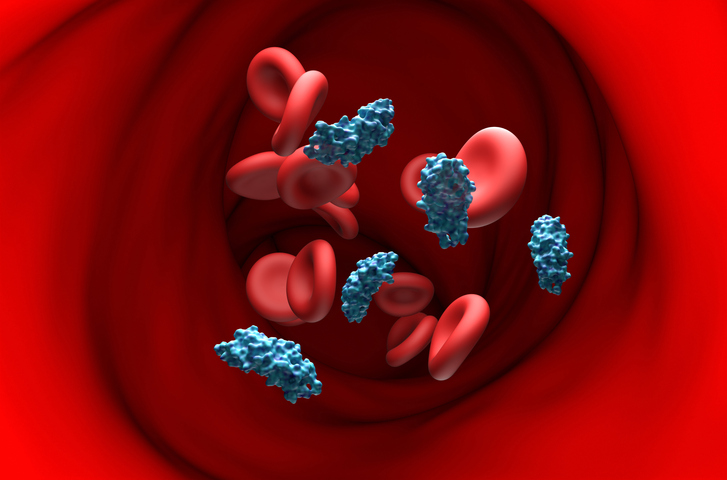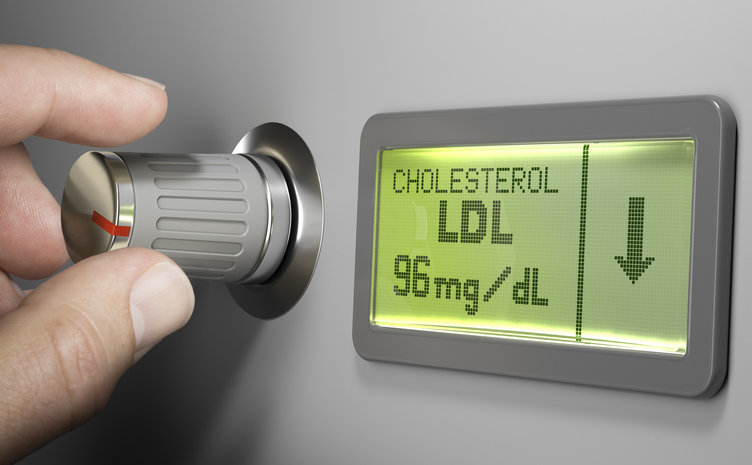
Elevated baseline lipoprotein(a) levels (both on-statin and not on-statin) showed a strong linear relationship with risk for cardiovascular disease, according to the results of a new meta-analysis published in The Lancet.
Researchers for the study looked at patient-level data from seven randomized, placebo-controlled statin outcomes trials and then calculated hazard ratios for cardiovascular events (fatal or nonfatal coronary heart disease, stroke, or revascularization procedures). The analysis included data from 29,069 patients with repeat lipoprotein(a) measurements.
Baseline and on-statin treatment lipoprotein(a) levels for prediction of #cardiovascular events: individual patient-data meta-analysis of statin outcome trials https://t.co/H3eLTaa3a2 pic.twitter.com/SpuE80XTlw
— The Lancet (@TheLancet) October 5, 2018
According to the results, the initiation of statin therapy reduced low-density lipoprotein cholesterol (LDL-C) but was not associated with a significant change in lipoprotein(a) levels. The relationship between lipoprotein(a) and cardiovascular disease risk was linear, with lipoprotein(a) values of 30 mg/dL or more for baseline lipoprotein(a) or 50 mg/dL or greater for on-statin lipoprotein(a) linked with increased cardiovascular risk. The linear association was more pronounced for the on-statin lipoprotein(a) group compared to the on-placebo lipoprotein(a) group.
“In this individual-patient data meta-analysis of statin-treated patients, elevated baseline and on-statin lipoprotein(a) showed an independent approximately linear relation with cardiovascular disease risk,” the researchers concluded. “This study provides a rationale for testing the lipoprotein(a) lowering hypothesis in cardiovascular disease outcomes trials.”
Elevated baseline & on-statin Lp(a) showed an independent approximately linear association with #CVD risk for pts on Rx
Thoughts @skathire @lipiddoc @ADAlthousePhD https://t.co/hmgR1w4XCP— Dr Anastasia Mihailidou FAHA FCSANZ FESC (@AnastasiaSMihai) October 5, 2018
Hazard ratio below 1.4 so no causal relationship can be inferred according to Bradford Hill criteria. That's what data show. https://t.co/9SxslvH5QK
— Tim Noakes (@ProfTimNoakes) October 5, 2018
So so important – pay attention here https://t.co/RYiefVPSXv
— Ethan J. Weiss (@ethanjweiss) October 5, 2018
Happy to share our meta-analysis published today in the Lancet on lipoprotein(a) and cardiovascular risk in statin outcome trials (https://t.co/Uc7X1i0ARB). A slide deck is available at https://t.co/THHQr1kY7i @Lpa_Doc @TheLancet @imedtweets @UCSDHealth @Cambridge_Uni 1/5
— Peter Willeit (@PeterWilleit) October 4, 2018
It is important to realize that Lp(a) hypothesis remains to be tested. That requires a RCT that compares CV outcomes in pts treated with an agent that specifically lowers Lp(a) vs placebo. – ie antisense oligonucleotide LPA mRNA, thereby reducing Lp(a) https://t.co/VDE7NTzV24
— Thomas Dayspring (@Drlipid) October 5, 2018
Source: The Lancet







 © 2025 Mashup Media, LLC, a Formedics Property. All Rights Reserved.
© 2025 Mashup Media, LLC, a Formedics Property. All Rights Reserved.